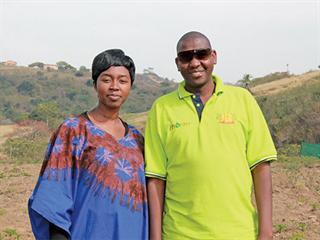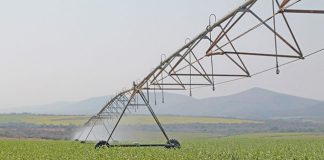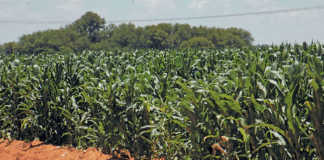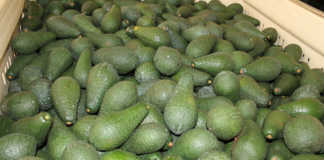
The owner of People’s Bio Oil (PBO), Nomzamo Khosa, was recently named the department of agriculture’s Female Entrepreneur of the Year for 2013, as well as National and KZN Top Entrepreneur: Export Market – accolades which brought in prize money totalling R870 000. Her business model involves individuals purchasing Moringa oleifera trees, which can either be planted on the investor’s own land or on PBO’s plantations near Umgababa, south of Durban. PBO has off-take agreements in place for the oil pods and leaves, which are used in the manufacturing of herbal products under the ‘Morana’ label.
Each tree costs R25, and PBO issues a certificate guaranteeing an annual payment of R500/tree for 20 years, with the first payment due after 12 months. But many investors are still waiting for their money. Xola Yenana, who works for the department of roads in the Eastern Cape is one. In June 2012, he bought 40 moringa trees for R1 000, expecting to receive R20 000 a year later. “The certificate guarantees payment 12 months after planting. There is no clause in writing to extend that time-frame,” said Yenana.
“I took a loan and that loan is accruing interest. Had I not received this promise from PBO, I would not have taken this loan. I could take legal recourse against them.” Nangamso Manyakanyaka, who lives in Cape Town, said she had invested R25 750 in May 2012 and has yet to hear from PBO why her first payment has not been made. A teacher from the Eastern Cape who invested R62 000 in 2 480 trees, but who preferred to remain anonymous, complained that she had been sent a letter after several calls, which stated that PBO would pay investors after 18 months and not 12. The letter was not signed, she said, and after 18 months she had still not been paid.
Individuals such as these, and co-ops, have either bought trees directly through PBO or through agents, who earn R5 to R7 commission per tree, depending on volume. An agent in the Eastern Cape, who also did not wish to be named, said she had invested R2 500 and brought in about 280 investors, including an 85-year-old woman.
“None of the investors I brought in have been paid, to my knowledge. PBO still owes me R84 000. We’re on hot ashes here. We’ve sold to people we know and now it’s strangling our relationship with them. We’re not jealous and we’re not fighting. We know this company is going to be big, but we need money for the future,” said the agent. The KZN Bio Oil Co-op, which was selling trees for PBO, said it had recruited more than 100 people who had invested about R454 000. These investors had not received any money yet.
“We’ve tried to communicate with PBO, because people are coming back to us, but we haven’t heard a word from them,” said chairperson Mzeli Xulu. In response to these complaints, Nomzamo Khosa said that PBO’s plantation had experienced some setbacks. Not only were trees bearing fruit at 18 months instead of 12 months, but 90% of the original plantation had been washed away by heavy rain and had to be replanted with added trenches.
“These have been big setbacks. We’re a new company. We started everything from scratch and in two years we have bought and leased different lands, prepared virgin lands, developed offices, a factory, a line of products, started shops, and monitor and maintain every system. “We’ve also had obstacles from unhealthy opposition which was trying everything to block us,” said Khosa.
She said that PBO guaranteed it would buy back the seeds and every part of the tree needed for manufacturing its products. “We do take responsibility to replant trees if something happens to the trees we planted for investors. We’ve also given farmers more trees for free if their trees have died, as our aim is to get the product from their trees.”
Khosa said that many investors had started receiving payments.
“At this point, no payment has been stopped and never will, as the trees exist and will be harvested. We have explained to our members that for now we’re unable to buy as much product as we intended because the factory is still under construction. We invite farmers to come and visit to see our progress.” PBO had sold 33 606 trees amounting to R840 150 but was no longer selling trees.
“We stopped selling trees last year when we found that many people and companies were selling trees and claiming to be working with us,” said Khosa. She said their expanded offices would open in November and they would also have more staff. “We apologise for the setbacks. As a new company, we are learning a lot and believe we have more to learn as we grow to be one of the biggest companies in South Africa,” said Khosa.
However, doubt has been expressed about the viability of PBO’s undertaking. GC Biofuels consultant Peter Camp said that a tree could generate up to R1 000 a year. “However, even in optimal conditions, a moringa tree would not give a commercial harvest in its first year. Moringa trees only start to give a commercial yield at the end of the second year,” he said, adding that the tree had a productive lifecycle of about 15 years.











